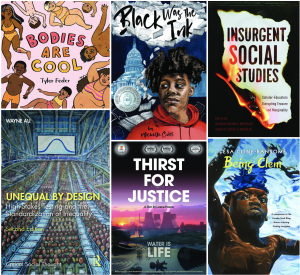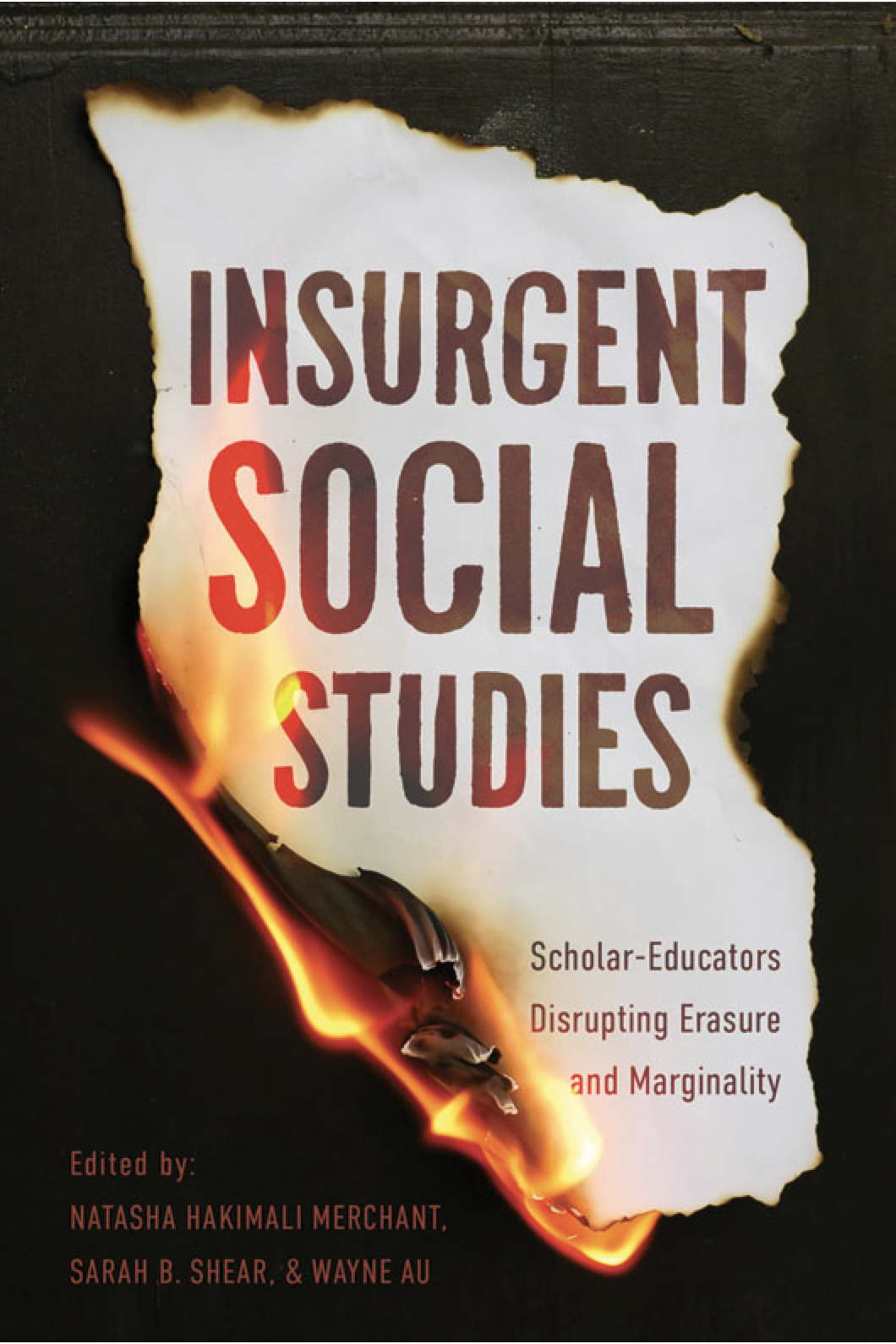 Rethinking Schools‘ recent picks social justice resources includes a wide variety of resources including picture books, novels, films, and education policy and practice.
Rethinking Schools‘ recent picks social justice resources includes a wide variety of resources including picture books, novels, films, and education policy and practice.
I’m proud to have contributed to one the recommended resources, Insurgent Social Studies: Scholar Educators Disrupting Erasure and Marginality (Myers Education Press, 2022), edited by Natasha Hakimali Merchant, Sarah B. Shear and Wayne Au. Rethinking Schools says:
“In the introduction to Insurgent Social Studies, the editors’ opening line is “Social studies education in the United States is a problem.” The problem is that the field of social studies has historically been dominated by white men, and this book serves as an intervention to that problem. Chapters in this collection offer perspectives and analyses of social studies from a variety of groups that have typically been marginalized, including the need for anticolonial social studies, Black Lives Matter in the social studies, the necessity of teaching about Palestine as part of social studies curriculum, challenging whiteness in social studies education, and queering world history, among others. This is an important collection for learning about social studies research and practices that are not typically included in the field.”
Introduction
We Won’t Wait Any Longer: An Introduction and Invitation to Insurgency for Social Studies
Natasha Hakimali Merchant, Sarah B. Shear, and Wayne Au
Chapter 1
Insurgence Must Be Red: Connecting Indigenous Studies and Social Studies Education for Anticolonial Praxis
The Turtle Island Social Studies Collective
Chapter 2
Solidarity Is a Verb: What the Black Lives Matter Movement Can Teach Social Studies About the Intersectional Fight Against Anti-Black Racism
Tiffany Mitchell Patterson
Chapter 3
The Audacity of Equality: Disrupting the Distortion of Asian America in Social Studies
Noreen Naseem Rodríguez and Esther June Kim
Chapter 4
“Existence is Resistance”: Palestine and Palestinians in Social Studies Education
H. Shatara
Chapter 5
Insurgente: A Familia in Conversation About Latinxs Voices in the Field of Social Studies
La Familia Aponte-Safe Tirado Díaz Beltrán Ender Busey Christ
Chapter 6
Unsatisfied: The Conceptual Terrain of De-Essentializing Islam in Social Studies
Natasha Hakimali Merchant
Chapter 7
Queer Worlding as Historical Inquiry for Insurgent Freedom-Dreaming
Tadashi Dozono
Chapter 8
Democracy Is Interdisciplinary: The Case for Radical Civic Innovation Across Content Areas
Antero Garcia, Nicole Mirra, and Mark Gomez
Chapter 9
Cultural Bombs and Dangerous Classes: Social Studies Education as State Apparatus in the War on Terror
Jennice McCafferty-Wright
Chapter 10
Whiteness and White Responsibility in Social Studies
Andrea M. Hawkman
Afterword
Insurgent Social Studies and Dangerous Citizenship
E. Wayne Ross
About the Authors
Index
 Follow
Follow

